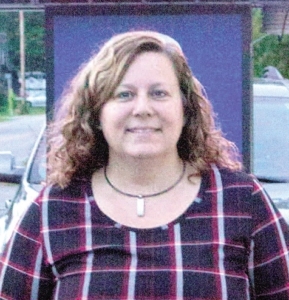Vassalboro Fire Chief Walker Thompson and semi-retired lieutenant/board of directors vice-president Michael Vashon joined town selectmen at their Feb. 4 virtual meeting to discuss a proposal to contract with Cost Recovery, a firm that seeks compensation for firefighters’ expenses from insurance companies.
Vashon said the department would submit estimates of firefighters’ and truck time for every fire or other incident. Cost Recovery would bill the appropriate insurance company, keeping 20 percent of amounts recovered. The rest would go to the fire department, which is separate from the town.
Town residents would be exempt from the program, Vashon said, except if they damaged department property, for example by running over a fire hose.
About 50 other Maine fire departments already contract with Cost Recovery, Vashon said; the company’s recovery rate is from 60 to 70 percent. Vassalboro could cancel the contract at any time.
Vashon and Thompson plan to keep half the money for firefighters’ supplies that traditionally are bought through donations and fundraisers. They proposed giving the other half to the town, hoping selectmen will add it to the fire department reserve fund, set aside to buy firetrucks and other major equipment.
Selectmen approved the idea, with board member Robert Browne adding the proviso that the bookkeeping not be too complicated. Town Manager Mary Sabins thought it would not be.
Thompson reported that the “old and brittle” boiler at the North Vassalboro fire station sprung a leak in January. It was patched and should last the winter; the fire department budget request includes $17,500 to replace it.
The chief also reported that so far in 2021, the fire department has responded to 20 calls, compared to seven calls by the beginning of February 2020. He thanked the town public works crew for clearing snow and fallen trees during recent storms – “They do a great job.”
After the firefighters signed out of the virtual meeting and Town Attorney Kristin Collins signed in, selectmen continued discussion of the revised draft marijuana ordinance. Several minor revisions and clarifications were proposed.
The draft ordinance prohibits new marijuana businesses in Vassalboro after its effective date, which will be not the date of enactment, but the date selectmen give their approval. Its eight pages of definitions and regulations apply to businesses in operation or approved before that date.
Registered caregivers are not affected by the ordinance, unless they are operating a cultivation facility, defined as a growing facility larger than 1,000 square feet. Sabins said state officials told her Vassalboro has 20 registered caregivers, but cannot provide names, addresses or information on the size of operations.
Businesses affected by the ordinance must be licensed every two years, must pay a licensing fee (to be determined – Collins said Maine municipalities’ current fees range from $500 to $5,000) and must continuously conform to the regulations and standards in the ordinance.
The latest version of the ordinance is available on the town website, www.vassalboro.net, in the center column under the third heading, “What’s New in Vassalboro.” Selectmen plan to continue discussion at their Feb. 18 meeting.
In the same section of the website is the schedule of budget committee meetings, in preparation for the June 7 annual town meeting. Selectmen discussed the budget at an in-person workshop Tuesday afternoon, Feb. 9, and plan a final review of their version on Feb. 18. The first budget committee meeting is scheduled for 7 p.m. Thursday, March 4, after a 6 p.m. selectmen’s meeting.
The other major topic at the Feb. 4 meeting was continued discussion of Conservation Commission member Holly Weidner’s proposed resolution on a carbon tax that would be paid by fossil fuel companies and returned to state residents. Assisted by Peggy Horner, she explained the environmental benefits of such a plan.
Weidner proposes the selectboard adopt the resolution and send it to the state legislature, the Congressional delegation, Governor Janet Mills and President Joe Biden. After a discussion of how state, regional and national plans interact, selectmen for the second time postponed a decision.
In other business, board members agreed they should ask for a meeting with a state Department of Transportation official, the commissioner, if possible, to try to get the North Vassalboro section of Route 32 higher on the department’s repair and maintenance priority list. Board Chairman John Melrose said he and resident Ray Breton talked about flooding problems; the road surface and sidewalks also need attention.
Melrose, a former Maine Commissioner of Transportation, believes the state’s present plan is to resurface Route 32 with so-called skinny mix, a thin layer that he said some people call “black paint.”
Browne and fellow board member Barbara Redmond approved Melrose’s proposal for an engraved granite marker at Monument Park, in East Vassalboro, where the Civil War soldier’s statue stands between the China Lake boat landing and the Vassalboro Historical Society building.
The granite will come from a collection at the public works garage. Provost Monuments, in Benton, will engrave the words “Monument Park” for $825 – a discounted price, Melrose said, as bills for other park improvements have been discounted. Road Commissioner Eugene Field and landscaper Steve Jones recommend a crushed stone underlayer rather than a more expensive cement base.
A second discussion of the theme for the 2020 town report, covering the period from July 1, 2019, to June 30, 2020, led to the tentative decision to combine historical connections between the State of Maine, created March 15, 1820, and the town of Vassalboro, incorporated April 26, 1771, with contemporary effects of the coronavirus pandemic.
Selectmen planned to continue discussion at their Tuesday, Feb. 9, afternoon budget workshop. Residents’ suggestions and information are welcome and may be sent to msabins@vassalboro.net.
The next regular Vassalboro selectmen’s meeting is scheduled for 6:30 pm. Thursday, Feb. 18.
 China’s Emergency Preparedness Committee met virtually the afternoon of Feb. 18 to continue updating China’s Emergency Action Plan, a project started earlier in the month.
China’s Emergency Preparedness Committee met virtually the afternoon of Feb. 18 to continue updating China’s Emergency Action Plan, a project started earlier in the month.







